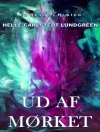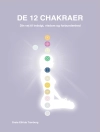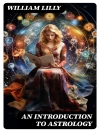Astrology can provide us with important insights for many moments in our lives. When it comes to choosing a good book, it wouldn’t be any different! In this series we choose novels to entertain and stir the imagination of each zodiac sign.
In this book you will find two classic novels specially selected for the optimistic and generous Sagittarius.
For a more complete experience, be sure to also read the anthologies of your rising sign and moon sign!
This book contains:
– Treasure Island.
– Madame Bovary.
Про автора
Robert Louis Stevenson was a Scottish novelist and travel writer, most noted for Treasure Island, Kidnapped, Strange Case of Dr Jekyll and Mr Hyde, and A Child’s Garden of Verses. Born and educated in Edinburgh, Stevenson suffered from serious bronchial trouble for much of his life, but continued to write prolifically and travel widely in defiance of his poor health. As a young man, he mixed in London literary circles, receiving encouragement from Andrew Lang, Edmund Gosse, Leslie Stephen and W. E. Henley, the last of whom may have provided the model for Long John Silver in Treasure Island. Stevenson spent several years in search of a location suited to his health, before finally settling in Samoa, where he died. A celebrity in his lifetime, Stevenson attracted a more negative critical response for much of the 20th century, though his reputation has been largely restored. He is currently ranked as the 26th most translated author in the world.
Gustave Flaubert was a French novelist. Highly influential, he has been considered the leading exponent of literary realism in his country. He is known especially for his debut novel Madame Bovary, his Correspondence, and his scrupulous devotion to his style and aesthetics. The celebrated short story writer Guy de Maupassant was a protégé of Flaubert. Flaubert famously avoided the inexact, the abstract and the vaguely inapt expression, and scrupulously eschewed the cliché. In a letter to George Sand he said that he spends his time ‘trying to write harmonious sentences, avoiding assonances.’












